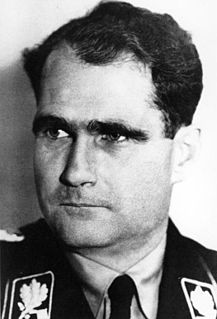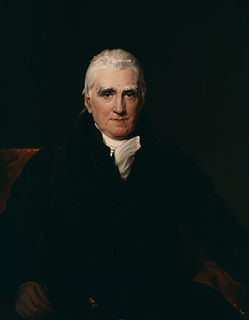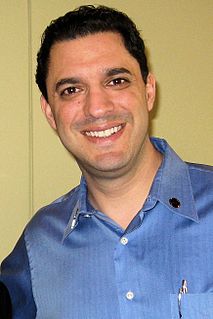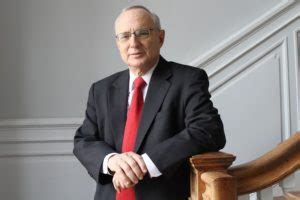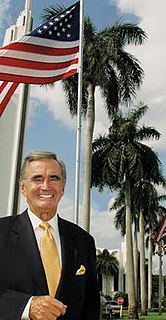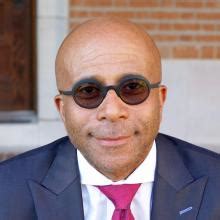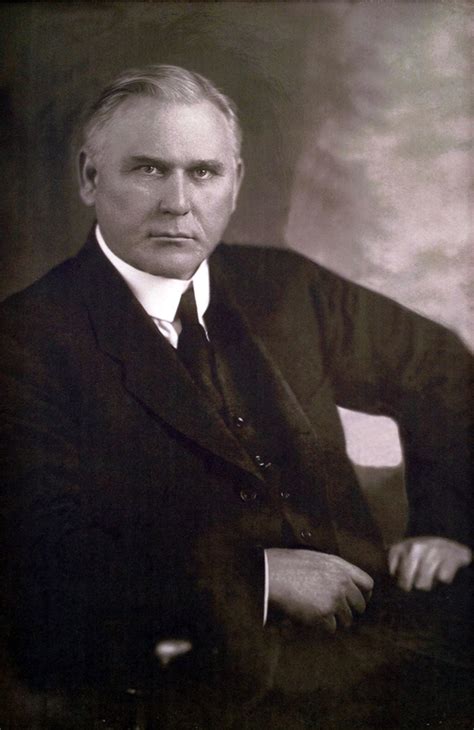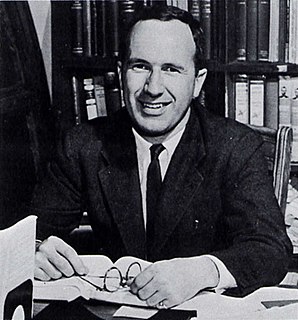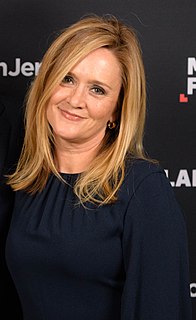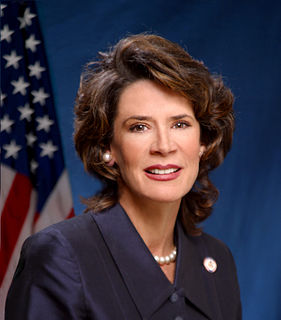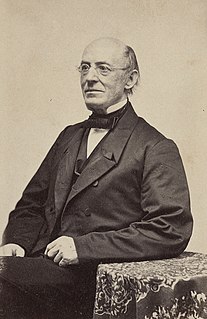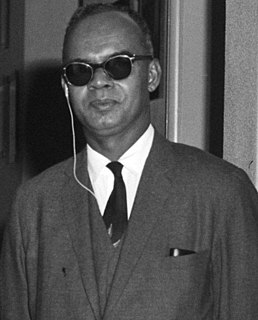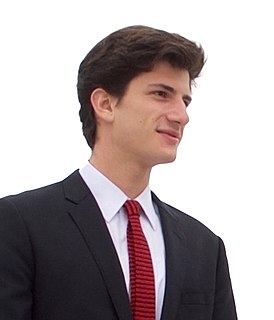Top 1200 Separation Of Church And State Quotes & Sayings - Page 3
Explore popular Separation Of Church And State quotes.
Last updated on November 15, 2024.
One of the primary questions in a state-church arrangement is, 'which controls which?' . . . In Norway, for example, the liberal labor government has regularly angered Church officials by making controversial ministerial appointments against the wishes of the clergy. . . . These and other actions have strained the church-state relationship almost to the breaking point. As a result, some of the bishops have advocated disestablishment.
Religious institutions that use government power in support of themselves and force their views on persons of other faiths, or of no faith, undermine all our civil rights. Moreover, state support of an established religion tends to make the clergy unresponsive to their own people, and leads to corruption within religion itself. Erecting the 'wall of separation between church and state,' therefore, is absolutely essential in a free society.
The civil Government, though bereft of every thing like an associated hierarchy, possesses the requisite stability, and performs its functions with complete success; whilst the number, the industry, and the morality of the Priesthood, and the devotion of the people, have been manifestly increased by the total separation of the church from the State.
I dont see we can have a separation of church and state in this government if you have to pass a religious test to get in this government. And I want to warn everyone in the press and all the voters out there: if you demand expressions of religious faith from politicians, you are just begging to be lied to. They wont all lie to you but a lot of them will. And itll be the easiest lie they ever had to tell to get your votes. So every day till the end of this campaign, Ill answer any question anyone has on government, but if you have a question on religion, please, go to church.
In a Christian Theocracy, you'll never be Christian enough. There's always going to be somebody there with another version of Christianity that is more Christian than you and you're going to lose the freedom to make the choice because you didn't defend the Separation of Church and State when you had the chance.
Why has America's fringe left been making common cause with the Taliban, whose views on such matters as women's rights and separation of church and state are appallingly retrograde by anyone's standards? One reason may be that the Taliban seem to have mastered the language of victimhood, sounding like denizens of some college ethnic-studies department.
The divorce between Church and State ought to be absolute. It ought to be so absolute that no Church property anywhere, in any state or in the nation, should be exempt from equal taxation; for if you exempt the property of any church organization, to that extent you impose a tax upon the whole community.
The separation of church and state can sometimes be frustrating for women and men of deep religious faith. They may be tempted to misuse government in order to impose a value which they cannot persuade others to accept. But once we succumb to that temptation, we step onto a slippery slope where everyone's freedom is at risk.
There's no question that a public official of either party can take it too far, and it's up to the candidate to be able to strike that balance, the balance that is the separation of church and state. The way I've always looked at this is that every candidate has a right to talk as much or as little about their faith as they deem appropriate.
A State, in idea, is the opposite of a Church. A State regards classes, and not individuals; and it estimates classes, not by internal merit, but external accidents, as property, birth, etc. But a church does the reverse of this, and disregards all external accidents, and looks at men as individual persons, allowing no gradations of ranks, but such as greater or less wisdom, learning, and holiness ought to confer. A Church is, therefore, in idea, the only pure democracy.
Justice O'Connor was the fifth vote to uphold the time-honored principle, which bears repeating, of separation of church and state. There was real wisdom in the decision of our forefathers in writing a Constitution that gave us an opportunity to grow as such a diverse nation, and we should never forget it.
There is a fundamental difference between separation of church and state and denying the spiritual heritage of this country. Inscribed on the Jefferson Memorial in Washington, D.C. are Jefferson's words, 'The God Who gave us life gave us liberty -- can the liberties of a nation be secure when we have removed a conviction that these liberties are the gift of God?'
The church must be reminded that it is not the master or the servant of the state, but rather the conscience of the state. It must be the guide and the critic of the state, and never its tool. If the church does not recapture its prophetic zeal, it will become an irrelevant social club without moral or spiritual authority.
Churches can easily bring together, in a short period of time, a substantial number of people, and politicians have to assume that these folks have the potential to vote. Although there's supposed to be a separation of church and state, they want to go to these churches to say hello to the people, and they assume their hello might turn into votes.
I believe in absolute freedom of conscience for all men and equality of all churches, all sects and all beliefs before the law as a matter of right and not as a matter of favor. I believe in the absolute separation of church and state and in the strict enforcement of the Constitution that Congress shall make no law respecting an establishment of religion or prohibiting the free exercise thereof I believe that no tribunal of any church has any power to make any decree of any force in the law of the land, other than to establish the status of its own communicants within its own church.
This is one thing that's very interesting, how the people on the left always talk about separation of church and state. When you look at the theocracies all across the Middle East, where we look at constitutions that are based upon the Qur'an, I don't think you want to see that happening in the United States of America. So it is a theocratic political construct.
In the first place, the church can ask the state whether its actions are legitimate and in accordance with its character as state, i.e., it can throw the state back on its responsibilities. Secondly, it can aid the victims of state action. The church has an unconditional obligation to the victims of any ordering of society, even if they do not belong to the Christian community. The third possibility is not just to bandage the victims under the wheel, but to put a spoke in the wheel itself.
Constantine, the Emperor, saw something in the religion of Christ's people which awakened his interest, and now we see him uniting religion to the state and marching up the marble steps of the Emperor's palace, with the church robed in purple. Thus and there was begun the most baneful misalliance that ever fettered and cursed a suffering world... When ... Constantine crowned the union of church and state, the church was stamped with the spirit of the Caesars.
The establishment of religious freedom was no less momentous an achievement than the clearing of the great forest or the winning of independence, for the twin doctrines of separation of church and state and liberty of individual conscience are the marrow of our democracy, if not indeed America's most magnificent contribution to the freeing of Western man.
The United States have adventured upon a great and noble experiment, which is believed to have been hazarded in the absence of all previous precedent - that of total separation of Church and State. No religious establishment by law exists among us. The conscience is left free from all restraint and each is permitted to worship his Maker after his own judgement.
Last year I was on Pat Robertson's show, and we discussed our basic Christian faith - for instance, separation of church and state. It's contrary to my beliefs to try to exalt Christianity as having some sort of preferential status in the United States. That violates the Constitution. I'm not in favor of mandatory prayer in school or of using public funds to finance religious education.
The Bible says we are to be salt and light. And salt and light means not just in the church and not just as a teacher or as a pastor or a banker or a lawyer, but in government and we have to have elected officials in government and we have to have the faithful in government and over time, that lie we have been told, the separation of church and state, people have internalized, thinking that they needed to avoid politics and that is so wrong because God is the one who chooses our rulers.
Let them all believe whatever they want. It is pointless to go on radio shows and wrangle over mystical claims. However, such claims must not be imposed on captive children in government-owned schools. That is prohibited by the separation of church and state, a core principle in the First Amendment in America's Bill of Rights.
I questioned the faithful of all communions; I particularly sought the society of clergymen, who are the depositories of the various creeds and have a personal interest in their survival ... all thought the main reason for the quiet sway of religion over their country was the complete separation of church and state. I have no hesitation in stating that throughout my stay in America I met nobody, lay or cleric, who did not agree about that.
Kennedy believed in religious liberty and the separation of church and state. He did not believe in the right of elected officials to impose their religious views on others. He was the first Catholic ever elected president, and he spent much of the 1960 campaign defending his religion and assuring voters he would not take orders from the Vatican.
I believe that prayer in public schools should be voluntary. It is difficult for me to see how religious exercises can be a requirement in public schools, given our Constitutional requirement of separation of church and state. I feel that the highly desirable goal of religious education must be principally the responsibility of church and home. I do not believe that public education should show any hostility toward religion, and neither should it inhibit voluntary participation, if it does not interfere with the educational process.

